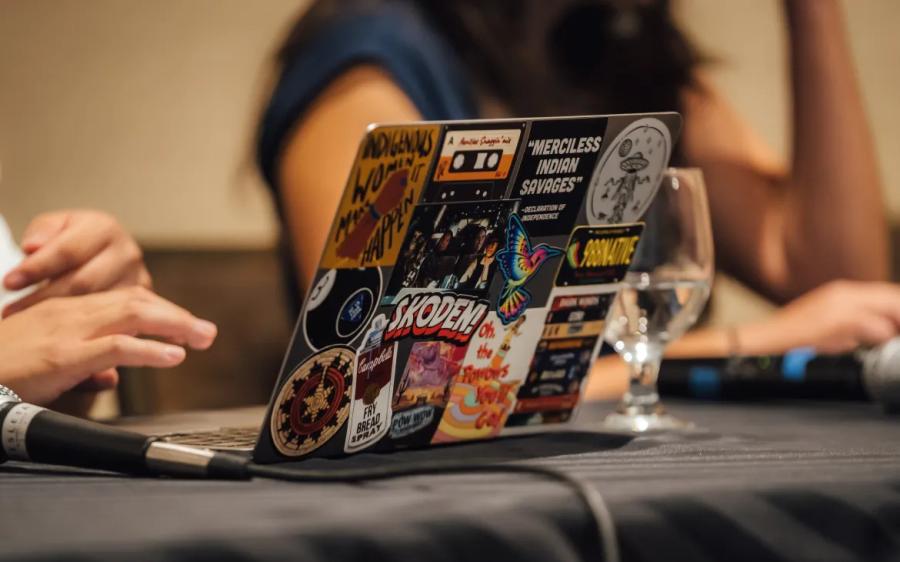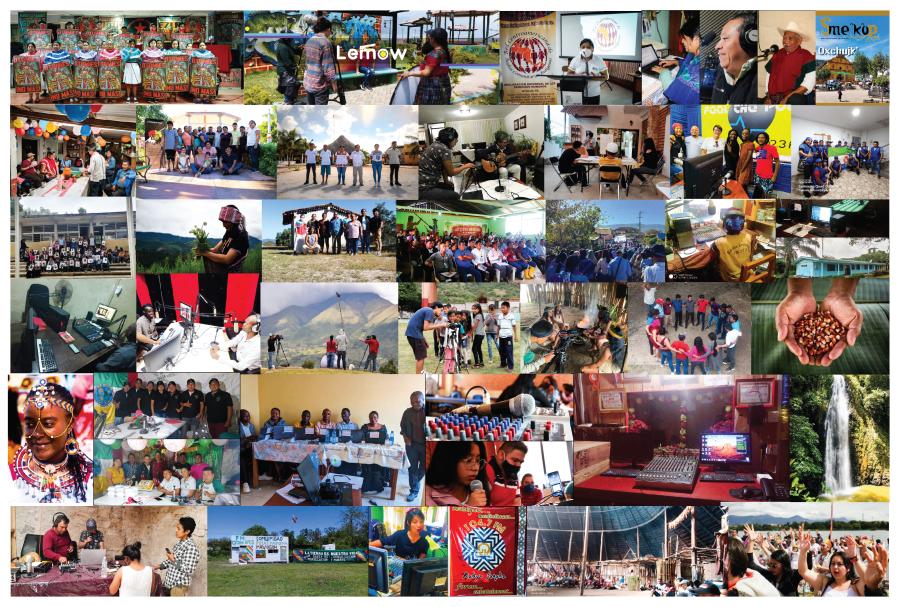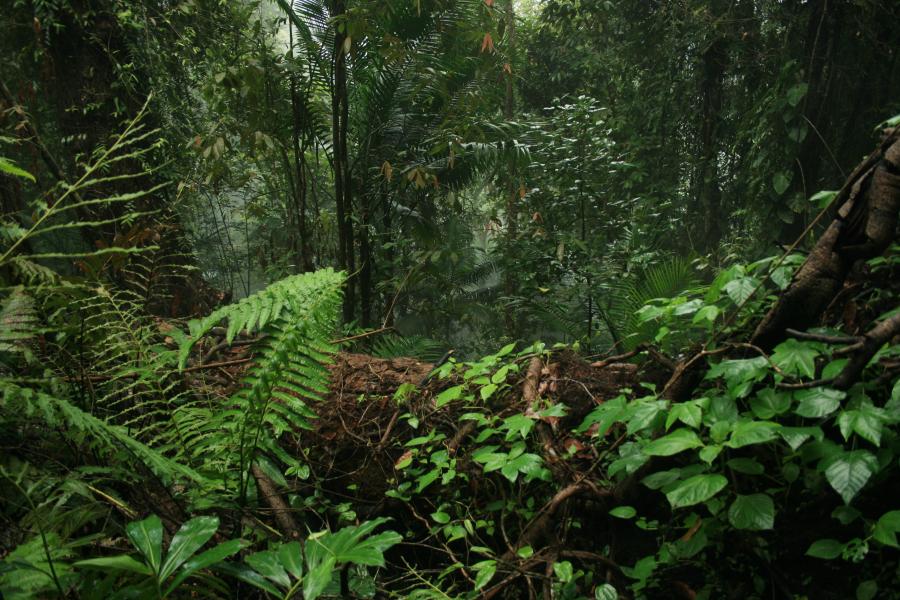
The Keepers of the Earth Fund (KOEF) is proud to announce our 2024 partnerships with Indigenous communities. At Cultural Survival, we value cultivating long-term relationships with our partners by supporting Indigenous projects related to community empowerment for the defense of land and autonomy; strengthening of Indigenous languages, cultures, and knowledge systems; conservation of Indigenous land and livelihoods in the face of climate change; and resistance to negative impacts from mining for the “green” energy transition.
The Keepers of the Earth Fund is an Indigenous-led fund at Cultural Survival designed to strengthen Indigenous Peoples' advocacy and community development projects globally. Since 2017, we have supported 392 projects in 40 countries through small grants and a wrap-around approach totaling $2,219,369. Grants go directly to Indigenous communities, collectives, organizations, and traditional governments to support projects designed by them and in accordance with their Indigenous values. Predicated on the United Nations Declaration on the Rights of Indigenous Peoples, Cultural Survival uses a rights-based approach in our grantmaking strategies to support grassroots Indigenous solutions through the equitable distribution of resources to Indigenous communities.
In 2024, in our eighth year of operations, we supported 83 Indigenous projects and collectives for a total amount of $614,222. The funds were sent directly to Indigenous communities, collectives, and grassroots organizations in 25 countries.
The following list summarizes the projects supported by KOEF in the 2024 cycle and covers topics related to the transmission of Indigenous cultures threatened by globalization. The projects include programs to strengthen Indigenous languages and schools that transmit knowledge, art, traditions, political organization, and the ways of life of each Indigenous Peoples. The ultimate goal is to respect Indigenous knowledge systems.
Strengthening Indigenous Languages, Cultures, and Knowledge Systems
Organization of Kichwa de Loreto Communities, Kichwa Amazonica (Ecuador)
Despite the recognition of Ecuador as a plurinational State, the Amazonian Kichwa language is neglected. For this reason, the Organization of Kichwa de Loreto communities, based in the province of Orellana, plans to carry out basic language courses for the youth. The Organization has a life plan and is aware of the main problems of the member communities regarding territory, autonomy, and language, recognizing that it is necessary to maintain the Kichwa language in education in order to maintain their identity.
Viypereku Integral Education Consultant, Mojeño Trinitario (Bolivia)
The communal authorities, teachers, and parents in the educational districts of Trinidad and San Ignacio de Mojos, department of Beni, expressed the need for more educational materials in the Mojeño Trinitario language to teach students in their own language in order to strengthen their cultural identity. To fill this need, the consultancy is carrying out a project to implement the Mojeño Trinitario language and culture in a new educational curriculum. Language booklets will be produced for different education levels in coordination with the Elders and the Indigenous authorities. After the booklets are printed, a workshop will be held to train teachers on their use.
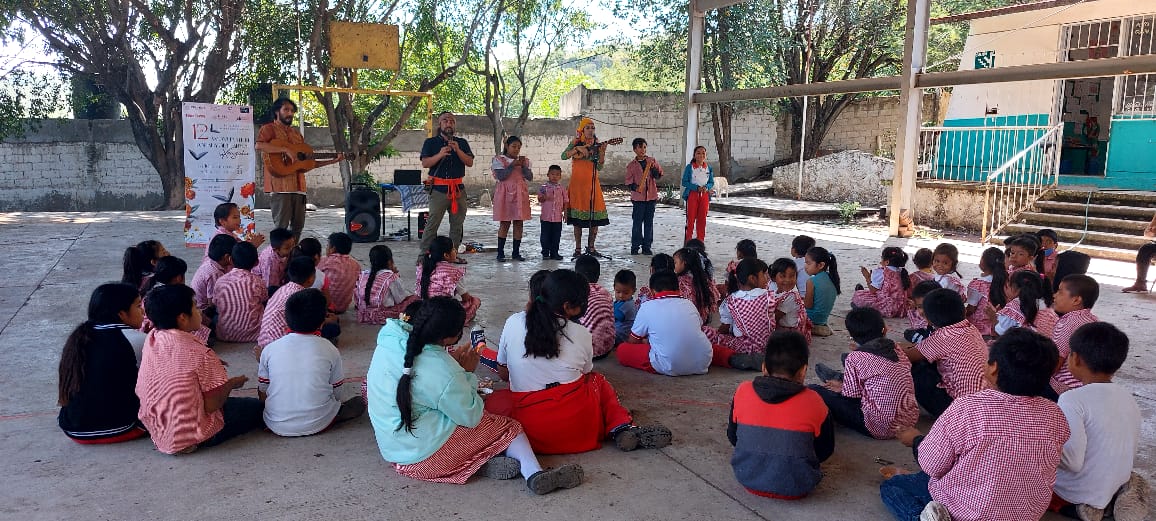
Yankuik Kuikamatilistli Cultural Center, Nahua (Mexico)
The Yankuik Kuikamatilistli Cultural Center (formerly the Sentlalistli In Tlakehualistli Tonemillis Xoxocoltekayotl/Cultural Promotion Center), engages in cultural and radio acitvities with the aim of rebuilding their cultural territories. They carry out seven programs aimed at promoting their mother tongue, food security, community communication, and the promotion of Indigenous rights. KOEF supported one of their main activities, the organization of the Amoxilhuitl tonemillis in tonanyoltlahtol in Xoxogulan (Book Fair in Our Mother Tongue) in three communities of the Indigenous municipality of Xoxocotla, Morelos.
San Jose del Cabitu Community, Multiethnic Indigenous Territory, Moxeño-Trinitario (Bolivia)
Increasingly, children and young people in the territory of San José del Cabitu, department of Beni, do not speak or understand the languages of their parents and grandparents— Moxeño-Trinitario and Ignatian. Since receiving official recognition of their territorial autonomy, the community has deemed it essential to address this language loss. Children and young people will learn by doing while interviewing the wisdom-holders and grandparents of the communities for the creation of a multimedia community archive. In addition, booklets will be created for the school curriculum. The community archive will promote the learning of the Moxeño-Trinitario language through three systems of their ancestral worldview: Uchuviare (god of the sky and the stars), Smenokuna (caretaker of the mountain and animals), and O'ekuna (caretaker of the water). Learning about these systems will include the history, myths, legends, dances, songs, and rituals, as well as practices related to daily life.
Indian River Rama Indigenous community, Rama (Nicaragua)
In the municipality of Bluefields in the South Caribbean Coast Autonomous Region, the cultural leaders of the Rama Peoples are concerned about the challenges presented by the new economic, social, and cultural processes of globalization, which are threatening local identity and culture. To promote linguistic and cultural identity from an intercultural education model, workshops will be held for teaching and learning the Rama language, along with a written and audiovisual linguistic compilation that will include aspects of the Rama identity such as stories, recipes, games, and costumes. The activities are led by the communal governments.
Raramuri Community Education of Kuechi, Raramuri (Mexico)
The school in Kuechi/Chihuahua recently lost its financial support, leading the parents to organize to keep the school open so they could continue educating their children according to their own culture. This year, they are receiving support from KOEF to finance courses that will strengthen Raramuri knowledge in planting, crafts, preserves, medicine, political organization, games, dance, sports, and other cultural traditions.
Santa Cruz Mixtepec Indigenous Community, Ñuu Savi (Mexico)
In this community of Ñuu Savi, there is a lack of spaces for young people to spend time together and strengthen their identity through culture and collective reflection. To meet this need, the traditional authority, in collaboration with the community high school, is proposing the construction of the Ñuu Savi Cultural Cinema. The space will host film screenings, conferences, workshops, and meetings, and will include a cafeteria that will generate income for the self-financed school. Construction will begin with financial support from KOEF, wood from the community, and tequio from community members.
Women's Association for the Development of Sacatepéquez, Maya Kaqchikel (Guatemala)
The Women’s Association for the Development of Sacatepéquez was founded in Santiago, Sacatepéquez in the 1980s by Maya women from the Kaqchikel community who organized in response to the problems of malnutrition and food insecurity. In 2012, they identified the problem of cultural misappropriation, industrialization, and commercialization of their textiles by people outside the Mayan culture. Since 2014, the Association has participated in strategic litigation for the protection of Maya collective intellectual property. This year, they continue to work in weaving schools in their territories to protect Traditional Knowledge and as a way to reclaim their own clothing. In addition, they will implement an agroecological vocational school, which is part of the right of women and Indigenous Peoples to safeguard their Traditional Knowledge and practices for a healthy diet.
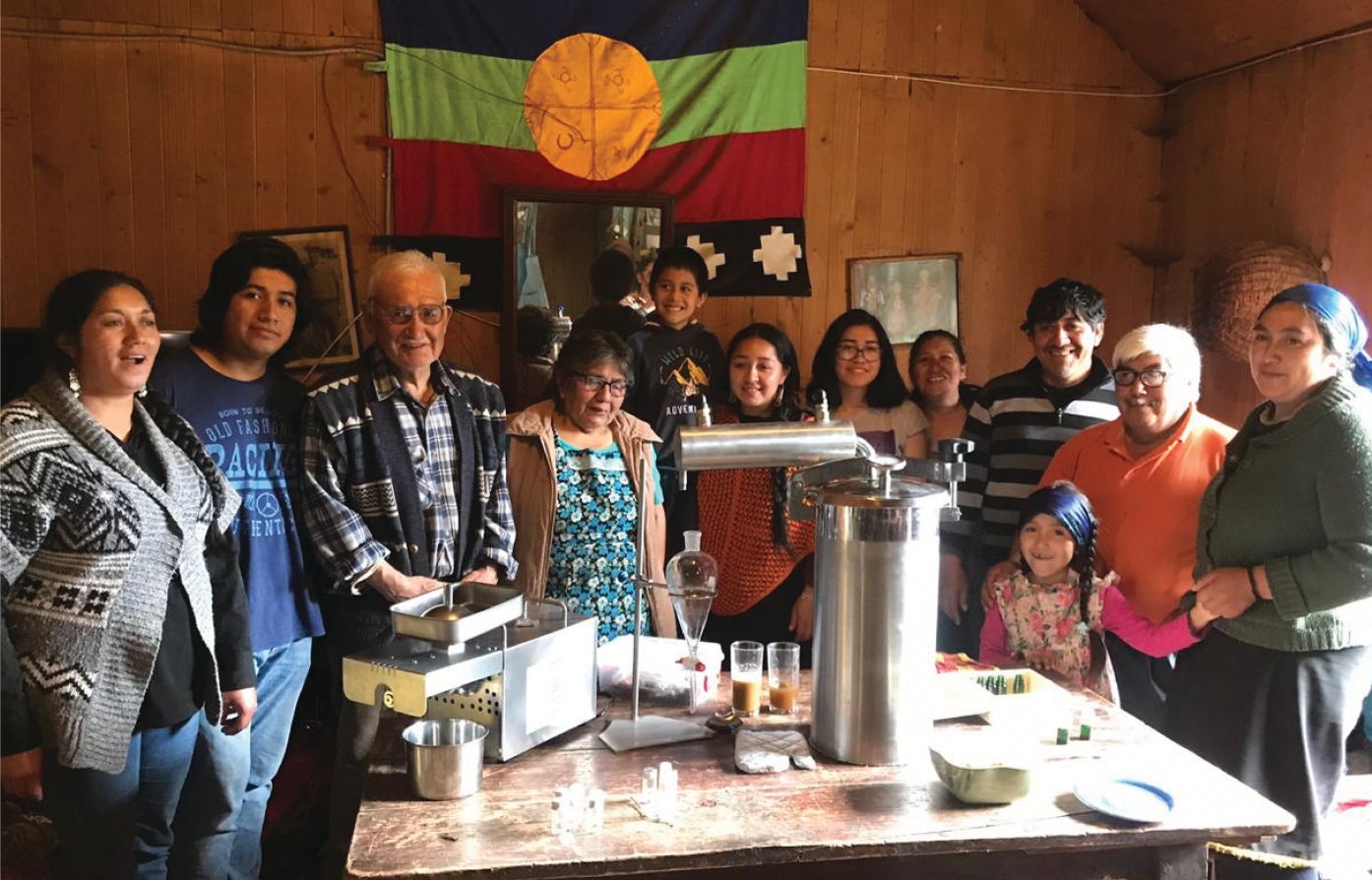
Budi Anumka Environmental Association, Mapuche-Lafkenche (Chile)
The Budi Anumka Environmental Association previously received funding from KOEF to establish a forest laboratory that integrates traditional Mapuche medicine. The continuation of this project will share this knowledge with younger generations via the creation of a memory card library to teach students about special plants of cultural and medicinal interest. Improvements will also be made to school nurseries so that young people can learn and help care for the environment and their traditions.
Okienani Waorani Association, Waorani (Ecuador)
The Okienani Waorani Association was created by a group of women artisans from the communities of Tobeta, Miwaguno, Dikaro, and Bameno in Orellana due to the need to create job opportunities for women who are heads of household. The Association is dedicated to the production and sale of crafts made with ancestral techniques and natural resources from the Amazon rainforest. In this project, they will focus on strengthening their organization and autonomy through self-management of spaces and income generation while continuing to practice cultural resistance and care for their territory. The members will participate in two national fairs, and will receive training in accounting and social media management and improving the quality of their products. They will also organize a regional exhibition in the association's maloca (ancestral long house).
Peguche Community, Otavaleño (Ecuador)
In Otavalo, the weaving community is facing the invasion of poor quality Chinese products, which, with their low cost, have affected the sale of authentic, local, handmade products. Otavalo artists are simultaneously facing high prices of raw materials for their work. With this project, the weavers want to strengthen their work by visiting different workshops and establishing closer relationships with raw material suppliers so that they can obtain better prices and mutual benefit in the long term.
